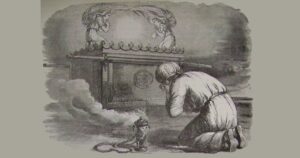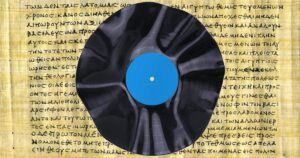Christ and his apostles show that the ritual legislation in Leviticus is relevant for us. While the law of Moses does not prescribe what we do in the Divine Service, it helps us to understand how God interacts with us in Christ and in the Divine Service. So each section of this commentary ends with a discussion of the fulfillment of each piece of ritual legislation by Christ. In each case we will examine the function and significance of the divine service, for what God intended to achieve ritually through his law in Leviticus is accomplished fully by Christ and conveyed to the church in the Divine Service.
Leviticus was used widely in the early church and later to preach the Gospel and our participation in God’s holiness by virtue of our union with Christ. In contrast, the modern church generally ignores Leviticus. …
The present neglect of Leviticus, however, should not surprise us. It is an accurate reflection of the status of the book in the contemporary church, and index of the embarrassment of Western Christians with its contents. It seems that this book is thought to have little to no relevance for modern people. At best, it contains outdated ancient Israelite ritual legislation that has been abolished by Christ. At worst, it is considered quite un-Christian in its promotion of ritual legalism, justification by works, the very antithesis of the Gospel. So churches that prize the Good News of free forgiveness through faith in Christ may mistakenly assume that they should no longer use Leviticus to nurture the saints, even though the entire book is concerned with forgiveness and atonement—more overtly than any other book of the Bible.Leviticus cannot be sidelined as easily as that, for much of the NT is rightly interpreted only in its light. We depend on Leviticus for the proper understanding of Christ’s death for sinners and the doctrine of his vicarious atonement, which is the heart of the NT Gospels and epistles. Christ is “the Lamb of God, who takes away the sin of the world” (Jn 1:29), “the Lamb who was slain” (Rev 5:12). The letter to the Hebrews, with its profound liturgical theology of Christ as both the great High Priest and the once-for-all sacrifice, would be inscrutable without Leviticus. From a literary point of view, it is the heart of the Pentateuch—the central book of the five that comprise the Torah, which is the foundation of the OT and indeed the entire canon.
John W. Kleinig, Leviticus (St. Louis: Concordia Publishing House, 2003), 25-26.




